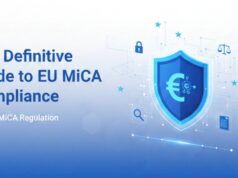+4.86%
+7.11%
+0.00%
-0.69%
+7.52%
+8.16%
Luxembourg is making a bold statement about the future of finance, and that statement is denominated in Bitcoin. In a move that could ripple across Europe and beyond, the nation’s Intergenerational Sovereign Wealth Fund (FSIL) is allocating a significant chunk of its assets – a full 1% – exclusively to the world’s leading cryptocurrency. This isn’t just dipping a toe in the water; it’s diving headfirst into the deep end of the Bitcoin pool.
The announcement, delivered by Finance Minister Gilles Roth at Bitcoin Amsterdam 2025, underscores a growing sentiment among some European leaders: that Bitcoin isn’t a fleeting fad, but a fundamental building block for a competitive financial future.
Finance Minister Gilles Roth didn’t mince words regarding Luxembourg’s investment strategy. “While the fund’s investment policy allows for an allocation to any crypto asset, it has chosen to invest only in Bitcoin,” he declared, adding a nod to Bitcoin evangelist Michael Saylor: “And because, as Michael Saylor once said, there is no second best and we’re in it for the long haul.” This laser focus on Bitcoin signals a conviction that goes beyond mere diversification.
The FSIL’s move makes it the first sovereign wealth fund in Europe to directly invest in Bitcoin, setting a precedent that other nations will be watching closely. Luxembourg’s Finance Ministry stated last month that FSIL would allocate 1% of its portfolio to Bitcoin and other crypto via ETFs as part of a strategy to bridge traditional finance with blockchain innovation.
Confidence in Cryptocurrency
For Roth, this isn’t just about chasing returns; it’s about positioning Europe as a leader in the digital age. He sees Bitcoin as a key component in making Europe more competitive, emphasizing its always-on nature: a system that “never shuts down.”
“I believe that crypto and in particular, Bitcoin, are part of the solution,” Roth stated. “Make no mistake, even among political leaders in Europe, more and more study Bitcoin.”
Luxembourg’s financial clout is undeniable. The country manages over 7.6 trillion euros in cross-border investment assets, a third of which are in alternative funds, making it the second-largest alternative funds hub globally, trailing only the United States. Hosting over 115 banks from more than 20 countries, Luxembourg is clearly a player on the world stage.
Luxembourg’s embrace of digital assets isn’t new. Roth highlighted the country’s decade-long involvement in the space, pointing to its early regulation of Bitstamp, the first European crypto exchange.
The nation has cultivated a thriving ecosystem of crypto exchanges, custodians, and service providers. Coinbase, for example, established its EU crypto hub in Luxembourg this summer, drawn by the clarity and forward-thinking approach of the Markets in Crypto-Assets (MiCA) regulation.
“This was never about hype. It was about a bridge between code and capital,” Roth explained.
While Roth doesn’t foresee a complete shift to a Bitcoin standard, he’s adamant about its role in the future of finance.
“In my mind, our economies will not switch to the Bitcoin standard,” Roth said. “But at the same time, Bitcoin will without any doubt be part of the future of finance.”
Luxembourg’s strategic allocation to Bitcoin could be a watershed moment, signaling a broader acceptance and integration of digital assets into the global financial system. Whether other nations follow suit remains to be seen, but one thing is clear: the game is changing, and Luxembourg is betting big on Bitcoin.




